Mad Sisters: book about schizophrenia released ahead of World Mental Health Awareness Day
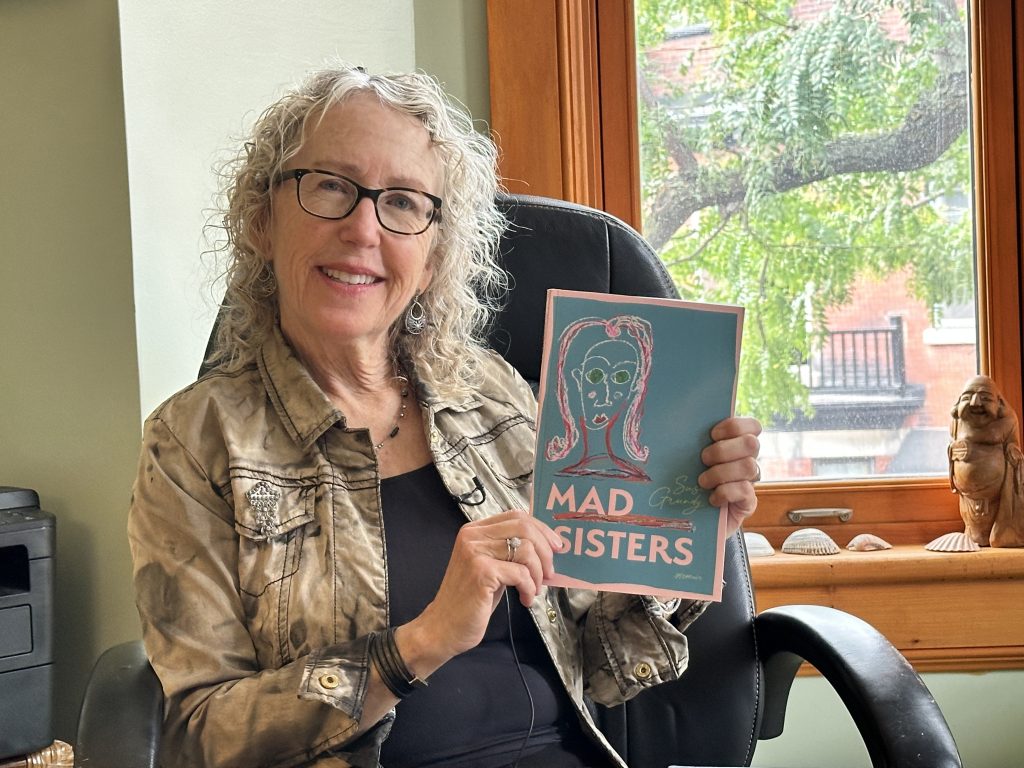
Posted October 9, 2024 4:41 pm.
Last Updated October 9, 2024 7:24 pm.
Thursday is World Mental Health Awareness Day and author Susan Grundy recently published “Mad Sisters.”
The story explores the devastating shifts in the family struck by mental illness; the tragedy of an adolescent girl with so much promise; discouraged parents who eventually start a new life elsewhere; and the jarring comparison between a free-spirited little sister and the burdened caregiver she becomes.
“Mad Sisters” candidly and with brave honesty describes a caregiver torn between fury at her sister’s resentful and jealous moods as a result of having schizophrenia, and being flooded with a sympathy and guilt of ‘why her and not me.’
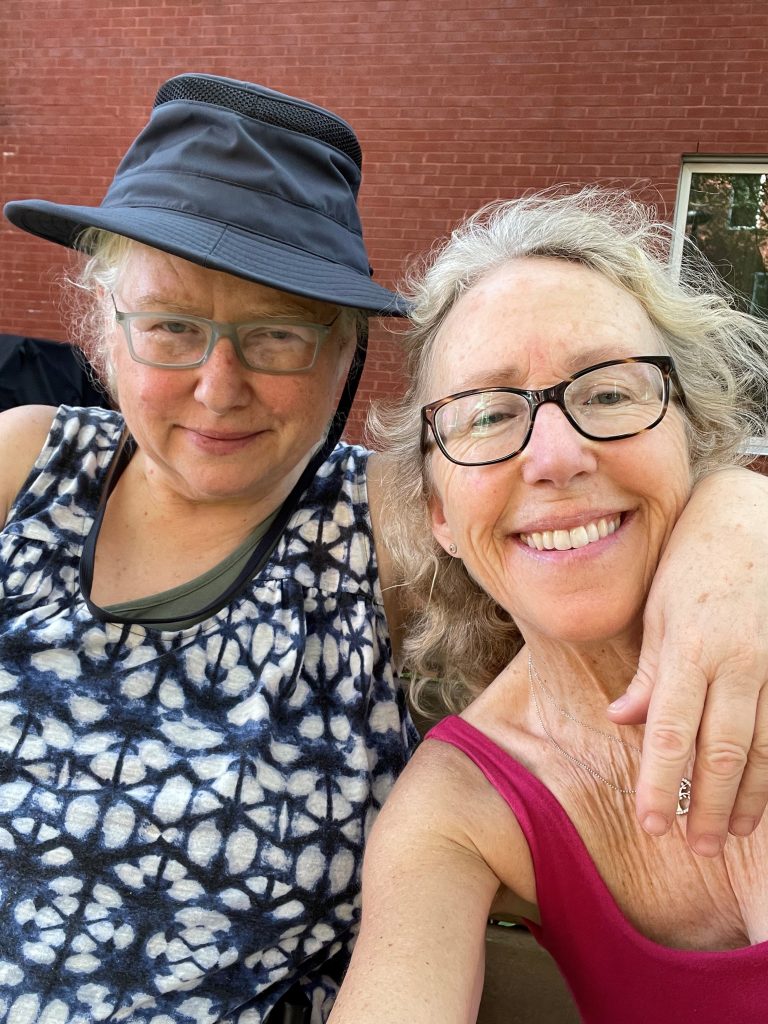
Grundy shares an excerpt from her book: “Sorry I’m a bit late. She checked her watch. I’ve been here 73 minutes.
“I lean forward. Why do you always insist on arriving so early?
“The empty coffee mug jumped from the weight of her fist landing on the table.
“Some of us are perpetually punctual. Some of us are perpetually late.”
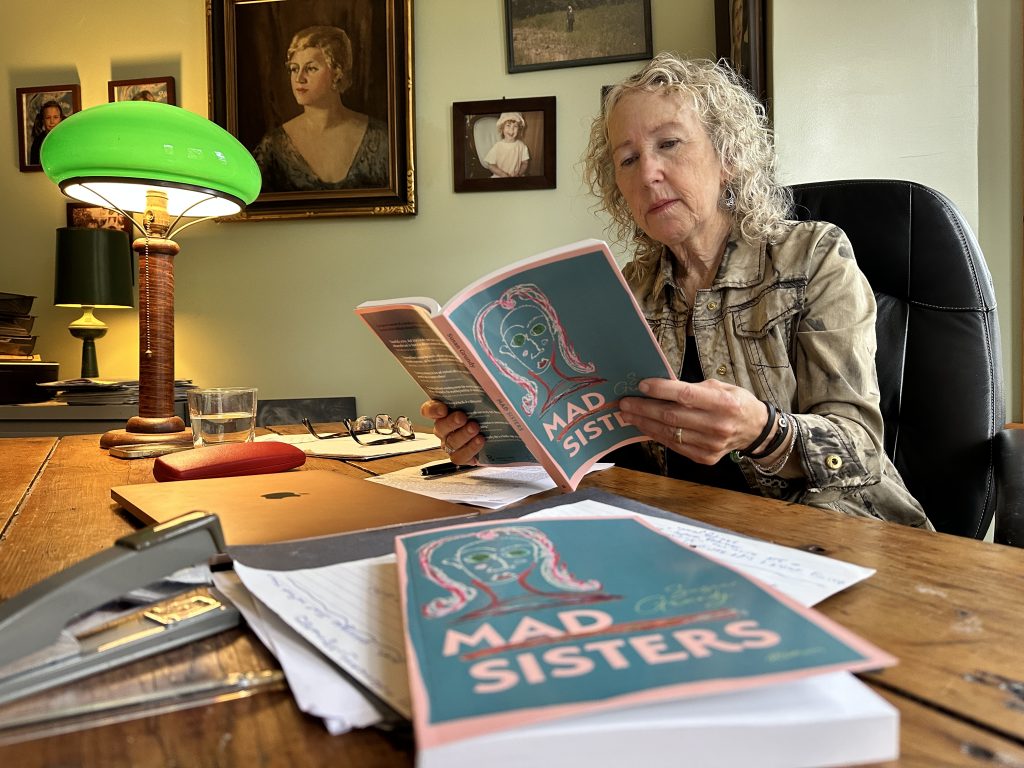
“Schizophrenia is like a cork popping from a bottle,” I told solicitous adults over the next few weeks, repeating what I had overheard. My hands were folded in my lap and my legs were crossed, just how my sister would have sat. The adults showered me with compliments. They told me I was handling it well. I didn’t feel like I was handling anything. The doctors would fix my sister and send her home. I was more worried about my distraught mother and her muffled crying from the other side of the bedroom door.” – excerpt from Mad Sisters
Grundy shares: “My sister was diagnosed with schizophrenia at 13 and honestly I don’t think of her as having schizophrenia.
“I’m not even sure if it’s now.
“They call it a mood disorder.
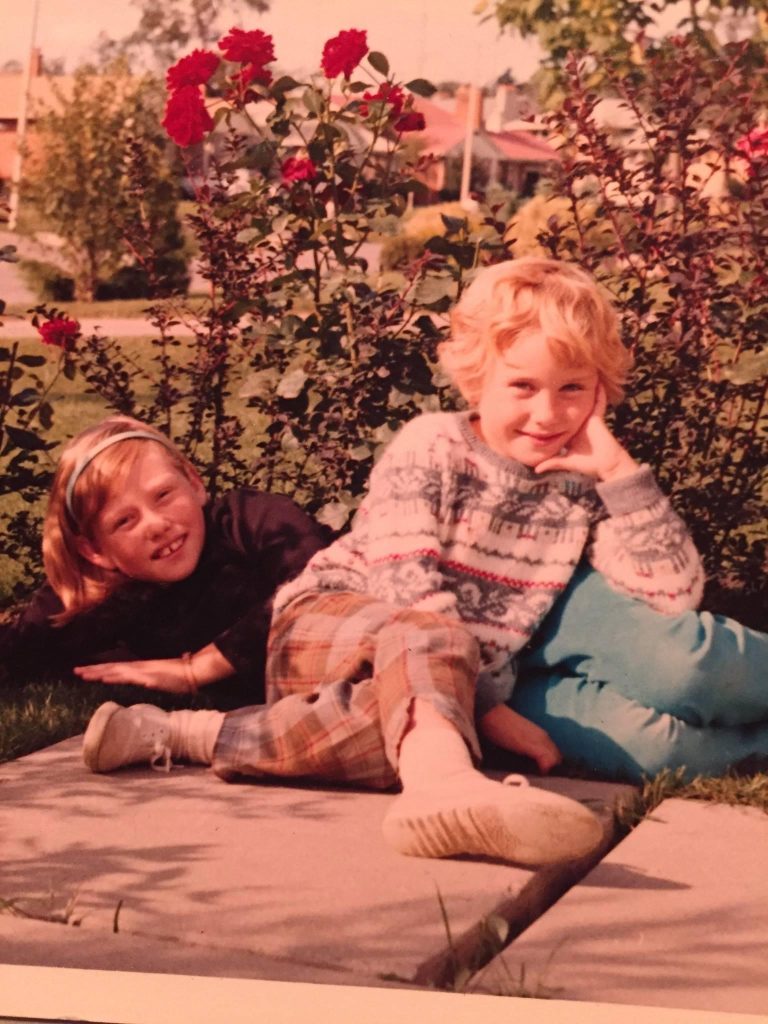
“There’s a movement going on now, a worldwide global movement calling for a paradigm shift in psychiatric care.
“I’m very excited about it and they are not too fond of diagnostic terms.”
Grundy shares another excerpt from the book: “Nancy early isn’t being punctual.
“She’s thumped a second time, attracting the attention of three white haired women at the next table.
“I lean towards my sister, calm down, people are watching.
“You calm down. I turn to the woman and mouth, sorry.
“One smiled back, the other two looked away.
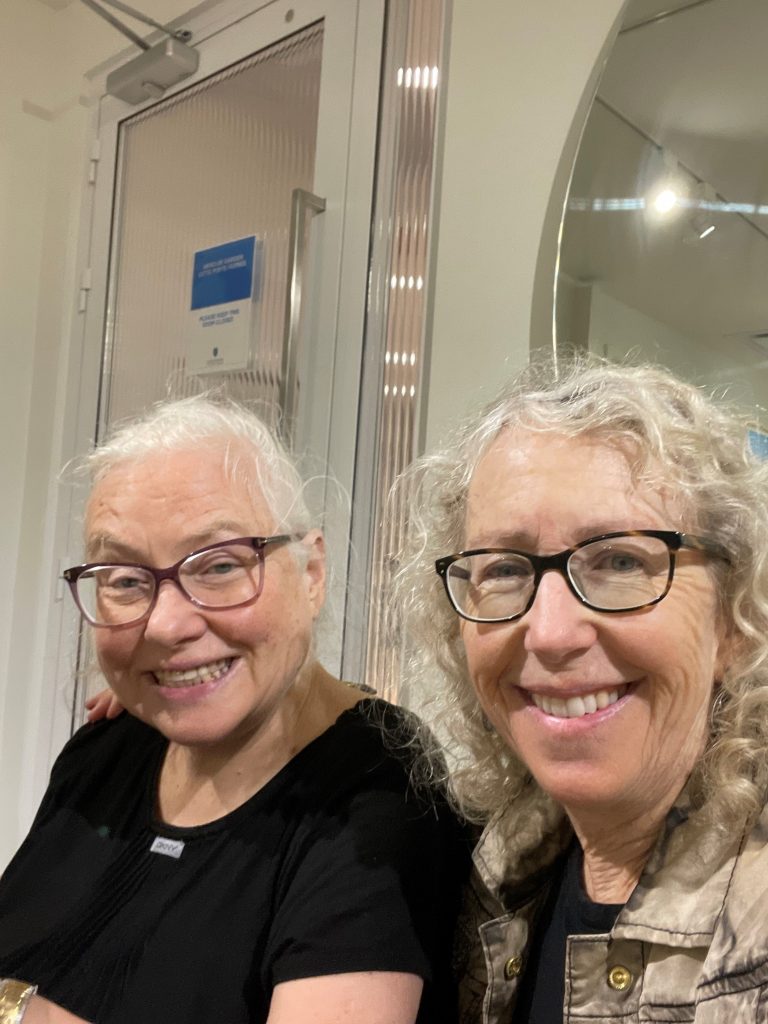
“Nancy’s fingers struggled with a zipper on her handbag.”
When asked about what inspired her to write the book, Grundy responded: “It came from my anger, my madness, my part of that mad sisters.
“I was really furious and came running home after an argument with her and just banged out 2,000 words and I was shocked at how good a first draft was.
“So I thought OK I got to give this a try.”
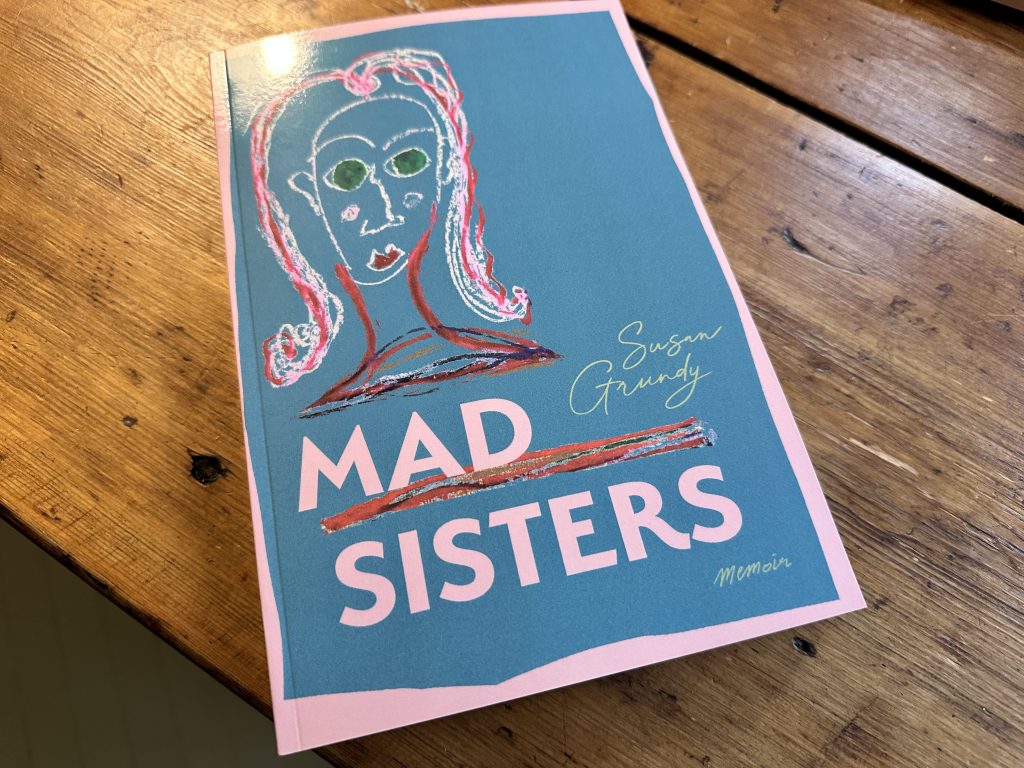
The author admits, “Caregivers first of all, they’re invisible health-care partners.
“I’ve had a heck of a time sometimes getting through when my sister’s been hospitalized to get updates, to provide some insight which I know. So that’s caregivers do require more visibility. In terms of the medical system, well it’s very drug-reliant and that’s not really working very well.”
Reliving and recounting the struggles Grundy has endured over the years as one half of the Mad Sisters was not easy to write and even more difficult to review.
She admits, “I have to say I glossed over some of the scenes because they’re still painful. That doesn’t go away.”
Grundy reads another excerpt from her book: “She gave up on the zipper and dropped the handbag on the floor.
“Why did you whisper to those women at the next table?
“Are you complaining about me?
“I was apologizing for the noise.
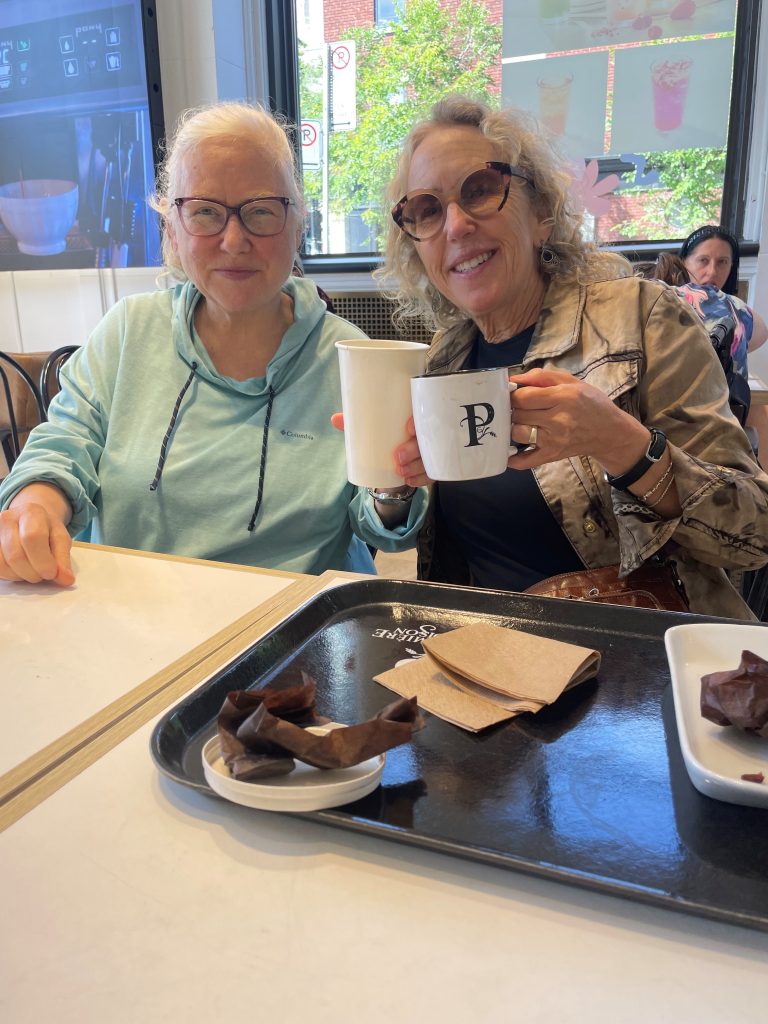
“Is that all you have to worry about?
“Noise?
“That’s minor compared to my problems.
“I’m going to the counter for a latte. Want anything?”
“Mad Sisters” shifts back and forth in time over five decades, highlighting how the past has influenced the present for Grundy. The story delves into the challenging experiences of a family dealing with mental illness, including the tragedy of a promising young girl, disheartened parents who start anew elsewhere, and the striking differences between a care-free younger sister and the burdened caregiver she becomes.
The Mental Health Commission of Canada reports that mental illness affects 7.5 million Canadians, which is one in five.
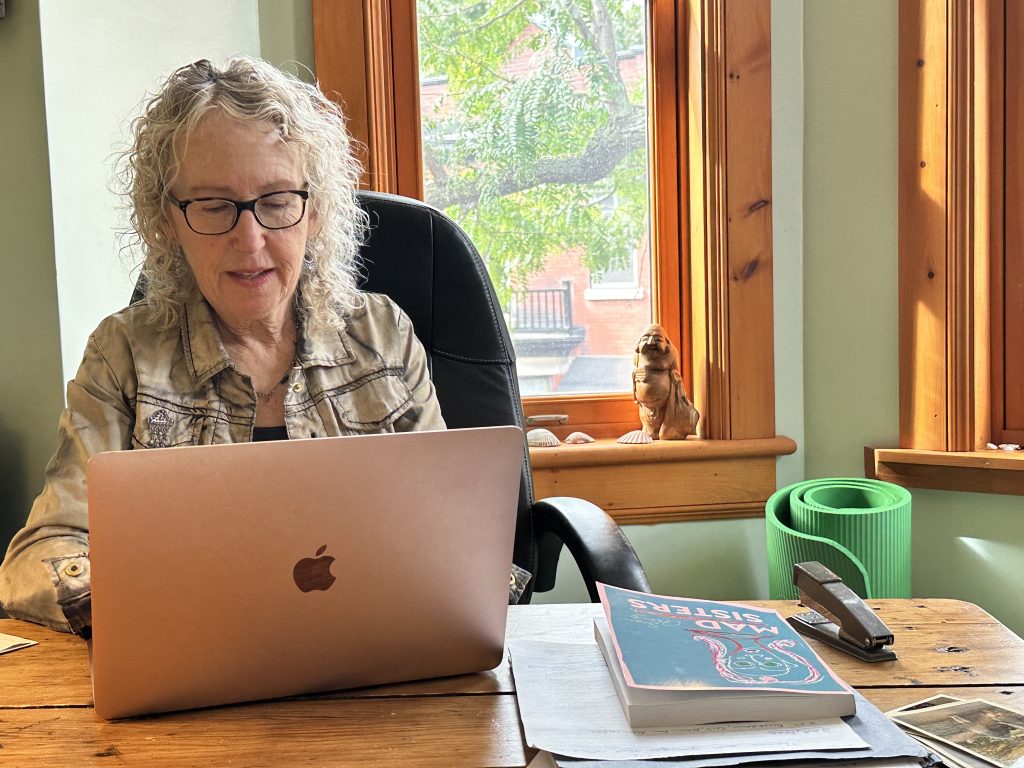
According to StatsCan, one-in-four Canadians provide care to a family member or friend with a chronic mental disorder.
“Mad Sisters” is a poignant, intense, often humorous, and uplifting narrative that challenges stigma and sheds light on the burdened family caregiver, particularly sibling caregivers.
It emphasizes the urgent need for systemic change in psychiatric care and advocates for a shift from the current drug-based medical model.
The story of the sisters, filled with tears and laughter, radiates with the potential for well-being and hope despite the collateral damage from a mental illness diagnosis.
This literary memoir invites readers to reflect on their own experiences with mental health, family dynamics, and the strength found in love and resilience, recognizing that most people have a story to tell.








